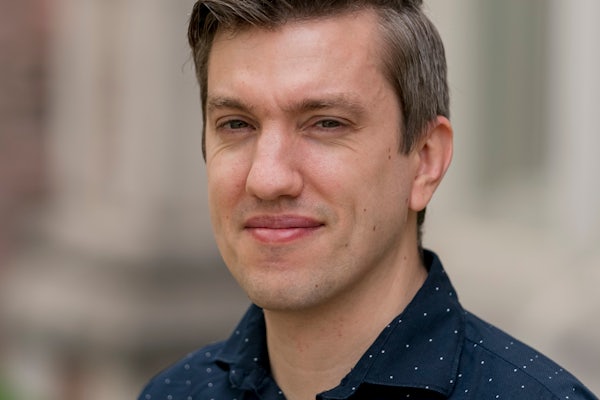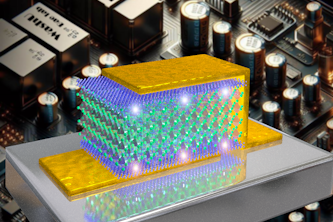Lawrence wins $100,000 grant from the Optica Foundation
The grant will fund research into high-resolution meta-reflect arrays with extremely low power consumption

Mark Lawrence, assistant professor of electrical & systems engineering in the McKelvey School of Engineering at Washington University in St. Louis, has received a $100,000 grant from the Optica Foundation for his work on fast, low-power, high-resolution meta-reflect-arrays for massive space-division-multiplexing.
Lawrence was one of 10 recipients of the award, which provides seed money to investigate impactful ideas in environment, health and information, from among more than 100 applications from around the world.
The Optica Foundation, which supports Optica’s student and early-career communities, launched its 20th Anniversary Challenge to address the need to fund scientific and engineering advancements from the global optics and photonics community and draw out novel ideas from early-career professionals.
“The selection committee is inspired by the outstanding quality of the awardees who truly represent the finest aspects of our membership,” said Alan Willner, chair of the 20th Anniversary Challenge Selection Committee and an Optica past president. “The winning proposals demonstrate superior creative ingenuity, applying photonics in novel ways to work toward solutions for a wide berth of society's most critical challenges. The award money will help provide recipients with an opportunity to explore their innovative ideas and benefit the larger good in the process.”
Research in Lawrence’s lab harnesses breakthroughs in nanoscale engineering to push the limits of light-based technologies, targeting applications ranging from all-optical computing and quantum communication to metrology and biosensing. Focusing particularly on control of free-space optical signals, they draw from a host of subwavelength photonic design concepts, including metamaterials, metasurfaces, photonic crystals, plasmonics and silicon photonics, as well as a range of material platforms and characterization techniques, such as 2D materials, III-V semiconductors, pump-probe microscopy and nonlinear spectroscopy.



